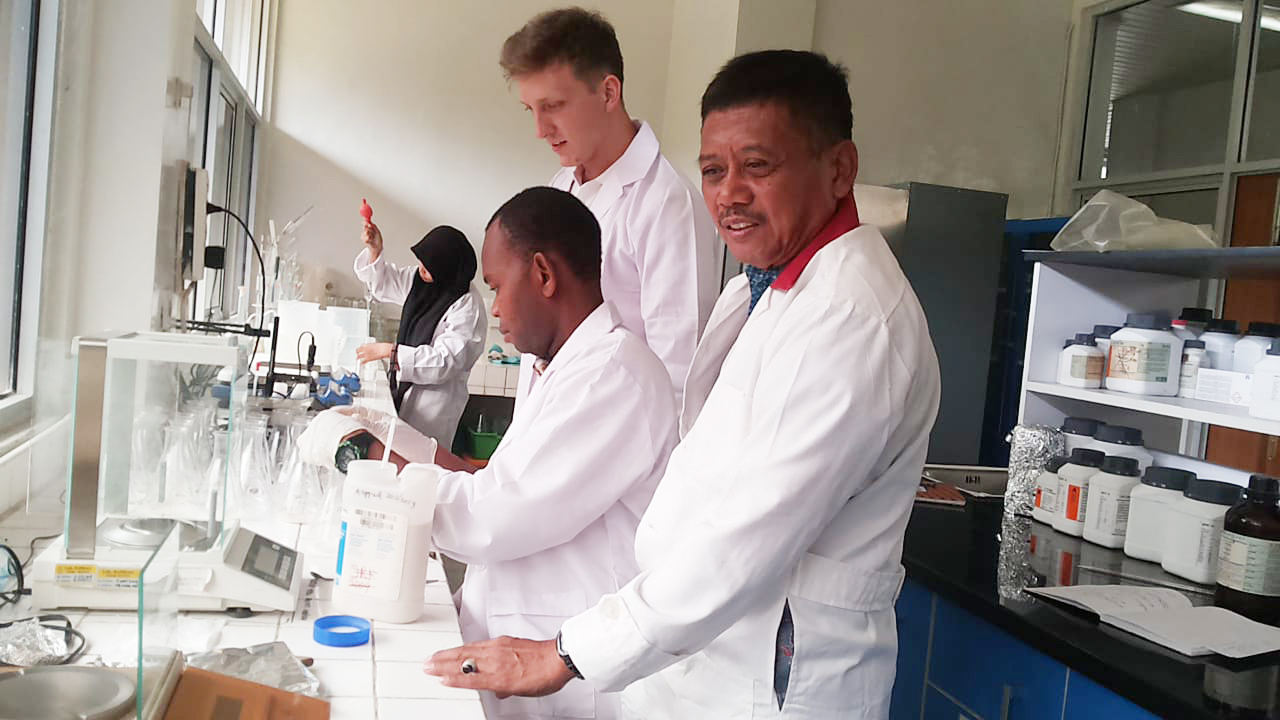Thanks in part to their active collaboration with the IAEA over decades, many developing countries have significantly enhanced their capacities in nuclear technology and have been using these technologies to reach their development goals. Some of these countries are now able to support other developing countries through a framework known as South–South cooperation.
South–South cooperation refers to technical cooperation support between developing countries. It covers many areas of the United Nations development agenda, such as agricultural development, health and climate change, and is of growing importance in addressing global challenges.
“The COVID-19 pandemic is the most complex immediate challenge facing our world and it is undermining hard-won social, economic and environmental gains. In such trying times, the solidarity that underpins South–South cooperation has once again proven vital for developing countries,” said United Nations Secretary-General António Guterres on the 2021 International Day for South–South Cooperation. “As the world seeks to ramp up COVID-19 response and recovery and tackle the existential threat of climate change, South–South and triangular cooperation is more essential than ever.”
As part of the IAEA’s contribution to global efforts to achieve sustainable development, in March 2019, on the occasion of the Second High-level United Nations Conference on South–South Cooperation, the IAEA reiterated its commitment to expanding South–South cooperation in the use of peaceful nuclear technologies. Indonesia is one of the countries now actively supporting this approach.
“For over 60 years, Indonesian experts have been working with the IAEA to build their nuclear capacities,” said Jane Gerardo-Abaya, Director of the IAEA’s Division for Asia and the Pacific. “Now, as a developing country with a high level of expertise, Indonesia has become a resource for neighbouring countries and is helping to promote regional self-reliance and strengthen local ownership of nuclear science and technology.”
In February 2018, Indonesia’s Ministry of Research and Technology signed Practical Arrangements with the IAEA to strengthen its support for other countries. Indonesian experts, in part through IAEA technical cooperation projects, have transferred knowledge to and advised experts from several countries in Africa and in Asia and the Pacific. Between 2016 and 2019, 43 scientists from African and Asian countries benefitted from fellowships and training at Indonesian nuclear science institutions, and during the same period, 29 experts from Indonesia contributed to IAEA projects in Africa and in Asia and the Pacific.
Indonesia will play a key role in the IAEA’s new Nuclear Technology for Controlling Plastic Pollution (NUTEC Plastics) initiative. NUTEC Plastics provides a platform for cooperation to combat plastic pollution and leverage the resources, knowledge and networks of participating countries. Indonesia is aiming to reduce its marine litter by 70 per cent in the next four years. With support from NUTEC Plastics, it plans to build a pilot facility that uses irradiation to recycle plastics, and will share its gained expertise with specialists from other countries.
“Indonesia has widely benefitted from the IAEA technical cooperation programme, ranging from human resources capacity building to equipment and facilities development. This programme has enabled Indonesia to advance its capabilities in research, development and the use of nuclear technologies in various fields, such as food and agriculture, health and nutrition, water and environment, and industrial applications,” said Dimas Irawan, Science Attaché at the Indonesian Embassy in Vienna. “With the knowledge and experience gained, we can now support other countries.”

